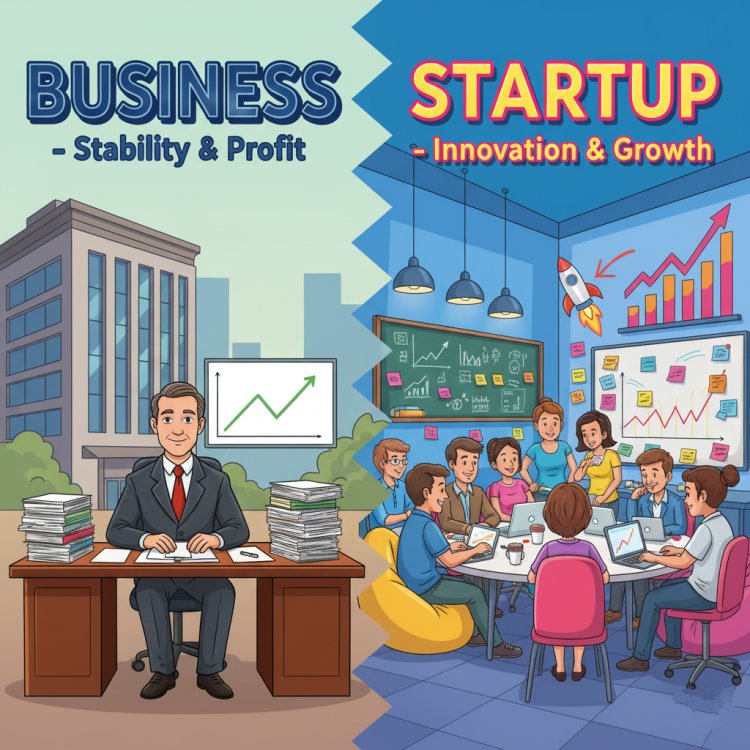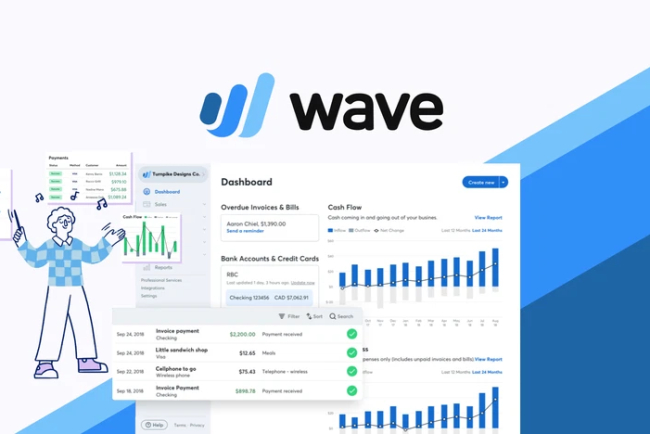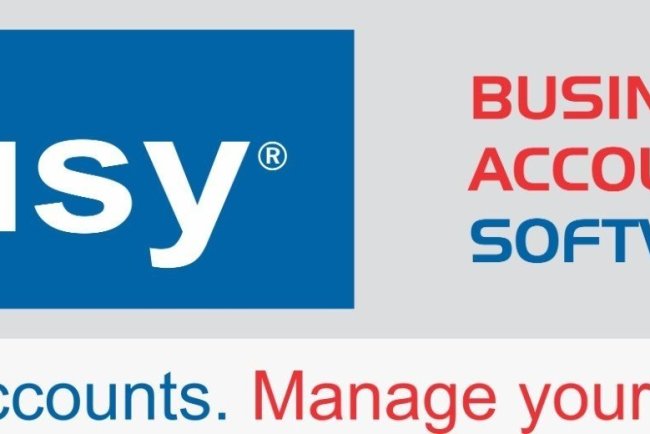What's the Difference Between a Business and a Startup?
A business and a startup may look similar, but they operate on very different principles. This article explores how businesses focus on stability and steady growth, while startups aim for innovation, rapid scaling, and disruption. By breaking down funding approaches, risk appetite, and long-term goals, we’ll clarify the key differences so you can better understand which path fits your vision.

Introduction
Every startup is a business, but not every business is a startup. This fundamental distinction confuses many aspiring entrepreneurs, investors, and even seasoned professionals. The terms are often used interchangeably in casual conversation, yet they represent fundamentally different approaches to commerce, growth, and value creation.
Understanding the difference between a business and a startup matters more than you might think. It affects how you approach funding, structure your operations, plan for growth, and measure success. Whether you're considering launching your own venture, investing in others, or simply trying to understand the modern economic landscape, clarity on this distinction will inform better decisions and set realistic expectations.
The confusion stems from the fact that both startups and traditional businesses share common goals: creating value, serving customers, and generating revenue. However, their methods, timelines, risk profiles, and ultimate objectives differ significantly. This comprehensive guide will explore these differences, helping you understand which path might be right for your entrepreneurial journey.
Defining a Traditional Business
A traditional business operates on proven models with established processes, clear revenue streams, and predictable growth patterns. These enterprises focus primarily on stability, consistent profitability, and sustainable operations over the long term. They serve existing markets with known products or services, often competing on factors like quality, price, customer service, or convenience.
Traditional businesses typically bootstrap their operations or rely on conventional funding sources like bank loans, personal savings, or revenue reinvestment. The founder's primary goal is usually to create a sustainable income source while building something that can operate independently or be passed down to future generations.
Consider a local restaurant, accounting firm, or retail store. These businesses follow time-tested models, serve established customer needs, and measure success through consistent profitability rather than exponential growth. They may innovate within their industry, but they're not fundamentally disrupting how business is done.
The operational structure of traditional businesses tends to be more hierarchical and process-driven. They develop standard operating procedures, focus on efficiency improvements, and scale gradually by adding locations, employees, or service offerings. Risk management is conservative, with decisions made to preserve capital and ensure steady returns.
Success metrics for traditional businesses center around profitability margins, cash flow consistency, market share within their geographic or demographic niche, and long-term sustainability. Growth is typically linear and measured, with expansion happening organically as demand increases or new opportunities arise.
Defining a Startup
A startup represents a fundamentally different approach to business creation. Startups are temporary organizations designed to search for repeatable and scalable business models that can capture massive markets. They're built around innovative solutions to significant problems, often leveraging new technologies or business model innovations to disrupt existing industries.
The startup approach embraces uncertainty and high risk in pursuit of extraordinary returns. Rather than following proven business models, startups experiment with new approaches, pivot when initial assumptions prove incorrect, and constantly iterate their products and strategies based on market feedback.
Startups typically require substantial upfront investment before generating significant revenue. They rely on external funding from angel investors, venture capitalists, or crowdfunding platforms. The investment thesis is based on potential rather than current performance, with investors betting on the startup's ability to capture large market opportunities.
The organizational culture of startups emphasizes speed, flexibility, and continuous learning. Decision-making is often decentralized, with small teams empowered to make rapid changes. The focus is on product-market fit, user acquisition, and preparing for rapid scaling rather than immediate profitability.
Consider companies like Uber, Airbnb, or Spotify in their early days. These weren't just new businesses; they were experimental approaches to solving transportation, accommodation, and music consumption problems. They required significant investment, time, and market education before becoming profitable, but they ultimately transformed entire industries.
Key Differences Between Businesses and Startups
Goals and Objectives
The fundamental difference lies in what each type of organization is trying to achieve. Traditional businesses aim for steady profitability and sustainable operations. They want to establish a reliable income source that can support the founder's lifestyle while providing consistent value to customers.
Startups, conversely, prioritize growth and market capture over immediate profitability. Their goal is to build something that can scale rapidly and potentially dominate large market segments. Profitability is often deliberately delayed in favor of user acquisition, market penetration, and competitive positioning.
Funding Approaches
Traditional businesses typically bootstrap their operations or use conventional financing methods. Bank loans, personal savings, revenue reinvestment, and small business grants are common funding sources. The business model must demonstrate immediate or near-term profitability to secure financing.
Startups rely heavily on investor funding, often raising multiple rounds of capital before achieving profitability. Angel investors, venture capital firms, and sometimes public markets provide funding based on growth potential rather than current financial performance. This creates different pressures and expectations for how the company operates.
Risk and Reward Profiles
Traditional businesses generally operate with lower risk and more predictable rewards. While any business venture carries risk, established business models provide more certainty about potential outcomes. The reward is typically steady income and gradual wealth building over time.
Startups embrace high-risk, high-reward scenarios. The majority of startups fail, but successful ones can generate extraordinary returns for founders and investors. This risk profile attracts different types of entrepreneurs and requires different psychological approaches to uncertainty and failure.
Timeline and Growth Patterns
Traditional businesses often plan for gradual, sustainable growth over many years or decades. They may start small and expand steadily, with success measured over long timeframes. The business model is designed to be sustainable indefinitely.
Startups typically operate on compressed timelines with expectations of rapid growth. They often aim to achieve significant scale within 5-10 years, with many planning for acquisition or public offerings as exit strategies. The organization is designed to be temporary, evolving into something larger or being absorbed by other companies.
Organizational Structure and Culture
Traditional businesses tend to develop formal structures, standardized processes, and clear hierarchies as they mature. The focus is on operational efficiency, consistency, and risk management.
Startups maintain flat organizational structures for as long as possible, emphasizing flexibility and rapid decision-making. The culture prioritizes experimentation, learning from failure, and adapting quickly to new information or market changes.
Similarities Between Businesses and Startups
Despite their differences, businesses and startups share fundamental characteristics that make them both valid entrepreneurial paths. Both require identifying customer needs and creating solutions that provide genuine value. Success in either model demands strong execution, effective leadership, and the ability to adapt to changing circumstances.
Both businesses and startups must master the basics of operations: managing finances, building teams, developing products or services, marketing to customers, and creating sustainable competitive advantages. They both require entrepreneurs to take initiative, bear responsibility, and persist through challenges.
The skills needed to succeed overlap significantly. Strategic thinking, customer focus, financial management, team building, and sales capabilities are valuable in both contexts. Many successful entrepreneurs move between traditional business and startup approaches throughout their careers.
Both models can create substantial value for their founders, employees, and communities. Traditional businesses often provide more stable employment and consistent economic contribution to local economies. Startups can create breakthrough innovations that benefit society while generating significant wealth.
Risk exists in both approaches, though it manifests differently. Traditional businesses face risks from market competition, economic downturns, and operational challenges. Startups face risks from unproven business models, funding challenges, and market acceptance uncertainty.
Which Path Should You Choose?
The choice between starting a traditional business or a startup depends on your personal circumstances, risk tolerance, financial situation, and entrepreneurial goals. Neither path is inherently better; they serve different purposes and suit different types of entrepreneurs.
Consider a traditional business if you value stability, want to maintain control over your venture, prefer predictable income, have limited access to investment capital, or are solving well-understood problems in established markets. Traditional businesses are excellent choices for entrepreneurs who want to build something sustainable while maintaining work-life balance.
The startup path makes more sense if you're comfortable with high uncertainty, have access to investment capital, are passionate about solving significant problems with innovative solutions, can tolerate years of delayed gratification, and are excited about the possibility of building something that could transform industries.
Your financial situation plays a crucial role in this decision. Starting a traditional business often requires less initial capital and can generate income more quickly. Startups typically require substantial investment and may not produce income for years.
Consider your expertise and interests. If you have deep knowledge of an established industry and see opportunities for incremental improvement, a traditional business might leverage your strengths effectively. If you're fascinated by emerging technologies or see opportunities to reimagine how things are done, the startup approach might be more suitable.
Think about your life stage and responsibilities. Traditional businesses often offer more predictable schedules and income, which can be important if you have family obligations or prefer stability. Startups typically demand intense commitment and irregular schedules, which works better for entrepreneurs who can dedicate themselves fully to the venture.
Real-World Examples and Case Studies
Consider the difference between opening a local bakery versus launching a food delivery technology platform. The bakery follows a proven business model: rent a location, hire bakers, source ingredients, bake goods, and sell to local customers. Success comes through quality products, good customer service, and efficient operations. Growth happens by expanding hours, adding products, or opening additional locations.
The food delivery platform represents a startup approach: develop technology that connects restaurants with customers, scale rapidly across multiple markets, attract investor funding to subsidize growth, and potentially revolutionize how people access restaurant food. Success requires solving complex logistical problems, achieving network effects, and capturing market share before competitors.
Both can be successful, but they require different skills, resources, and mindsets. The bakery owner focuses on local market dynamics, operational efficiency, and gradual expansion. The platform founder must understand technology, manage investor relationships, and navigate rapid scaling challenges.
Another comparison might be between a freelance consulting practice and a software-as-a-service (SaaS) company. The consultant leverages existing expertise to serve clients with established needs, building reputation and referrals over time. Revenue is directly tied to time invested, and growth happens by raising rates or adding team members.
The SaaS company develops software solutions that can serve thousands of customers simultaneously, requiring significant upfront development investment with the potential for exponential revenue growth. The consultant can achieve profitability immediately, while the software company might require years of development and market education before generating substantial revenue.
Future Trends and Evolution
The line between traditional businesses and startups continues to blur as technology democratizes access to tools and markets that were once available only to large corporations. Traditional businesses increasingly adopt startup methodologies like lean operations, rapid prototyping, and data-driven decision making.
Meanwhile, successful startups eventually evolve into traditional businesses as they mature, establish stable revenue streams, and focus on operational efficiency rather than disruptive growth. Companies like Google, Amazon, and Facebook began as experimental startups but now operate many divisions like traditional businesses.
The rise of digital platforms has created hybrid models that combine elements of both approaches. E-commerce businesses, for example, might start as traditional retail operations but leverage startup-style technology and growth tactics to scale rapidly.
Remote work and digital tools have lowered the barriers to entry for both business types. Traditional businesses can now serve global markets through digital channels, while startups can operate with smaller teams and lower overhead costs.
The increasing importance of sustainability and social impact is influencing both models. Traditional businesses are adopting more innovative approaches to meet changing consumer expectations, while startups are focusing more on long-term value creation rather than pure growth metrics.
Integration with Modern Business Tools
Whether you choose the traditional business or startup path, success increasingly depends on leveraging modern technology tools to streamline operations, understand customers, and compete effectively. The digital transformation has made professional-grade business tools accessible to companies of all sizes.
Customer relationship management systems help both businesses and startups track customer interactions, analyze buying patterns, and improve service delivery. Point-of-sale systems provide real-time sales data and inventory management capabilities that were once available only to large retailers.
Social media marketing platforms enable even small local businesses to reach targeted audiences with sophisticated advertising campaigns. Learning management systems allow companies to train employees and educate customers efficiently. Automation tools can handle routine tasks, freeing entrepreneurs to focus on strategy and growth.
The key is selecting tools that align with your business model and growth stage. Traditional businesses might prioritize tools that improve operational efficiency and customer service. Startups might focus more on analytics, customer acquisition, and rapid scaling capabilities.
Both business types benefit from integrated solutions that connect different aspects of their operations. When your point-of-sale system connects to your inventory management, customer database, and accounting software, you gain insights and efficiencies that can provide significant competitive advantages.
Empowering Your Business Journey with the Right Tools
Just as understanding the difference between businesses and startups helps clarify your entrepreneurial path, choosing the right operational tools can accelerate your success regardless of which approach you take. Modern business success requires more than just a great idea or proven business model; it demands efficient systems that can scale with your growth and adapt to changing market conditions.
At Gomsu Information Technologies, we understand that every business journey is unique, whether you're launching a traditional service business or building a disruptive startup. Our comprehensive suite of business solutions is designed to support entrepreneurs at every stage of their journey.
Our point-of-sale systems provide real-time insights into sales performance, inventory levels, and customer preferences, enabling data-driven decisions that drive profitability. Customer relationship management tools help you build stronger relationships with clients, track interactions, and identify opportunities for growth and retention.
Social media marketing services can amplify your reach and connect you with your ideal customers, whether you're serving a local market or scaling globally. Learning management systems ensure your team stays skilled and informed, while automation solutions free you to focus on strategic initiatives rather than routine tasks.
We believe in building lasting partnerships with growing businesses, which is why we offer exclusive discounted pricing that makes professional-grade tools accessible to companies of all sizes. Our solutions are designed to grow with you, providing the flexibility and scalability you need whether you're pursuing steady growth or rapid expansion.
Click here to know more about how Gomsu Information Technologies can provide the tools and support you need to build a thriving business, regardless of which path you choose.
Conclusion
The distinction between businesses and startups goes far beyond semantics. It represents different philosophies about entrepreneurship, growth, risk, and success. Traditional businesses focus on proven models, sustainable profitability, and steady growth. Startups embrace uncertainty, seek exponential growth, and aim to disrupt existing markets.
Neither approach is superior to the other; they serve different purposes and suit different types of entrepreneurs. Your choice should align with your personal goals, risk tolerance, financial situation, and vision for the future. Some entrepreneurs thrive in the structured environment of traditional business building, while others are energized by the uncertainty and potential of startup ventures.
The most successful entrepreneurs understand both models and may use different approaches at different stages of their careers or for different ventures. The key is matching your approach to your circumstances and objectives.
Regardless of which path you choose, success requires dedication, strategic thinking, and the right tools to execute your vision effectively. The modern business landscape offers unprecedented opportunities for entrepreneurs willing to commit to their chosen path and adapt as markets evolve.
If you found this blog helpful, please Like, Share, and Comment. If you have any doubts or suggestions, let us know — we would love to hear from you. Subscribe to our newsletter for more business insights and strategies that can help you succeed in whatever entrepreneurial journey you choose to pursue.
What's Your Reaction?






















